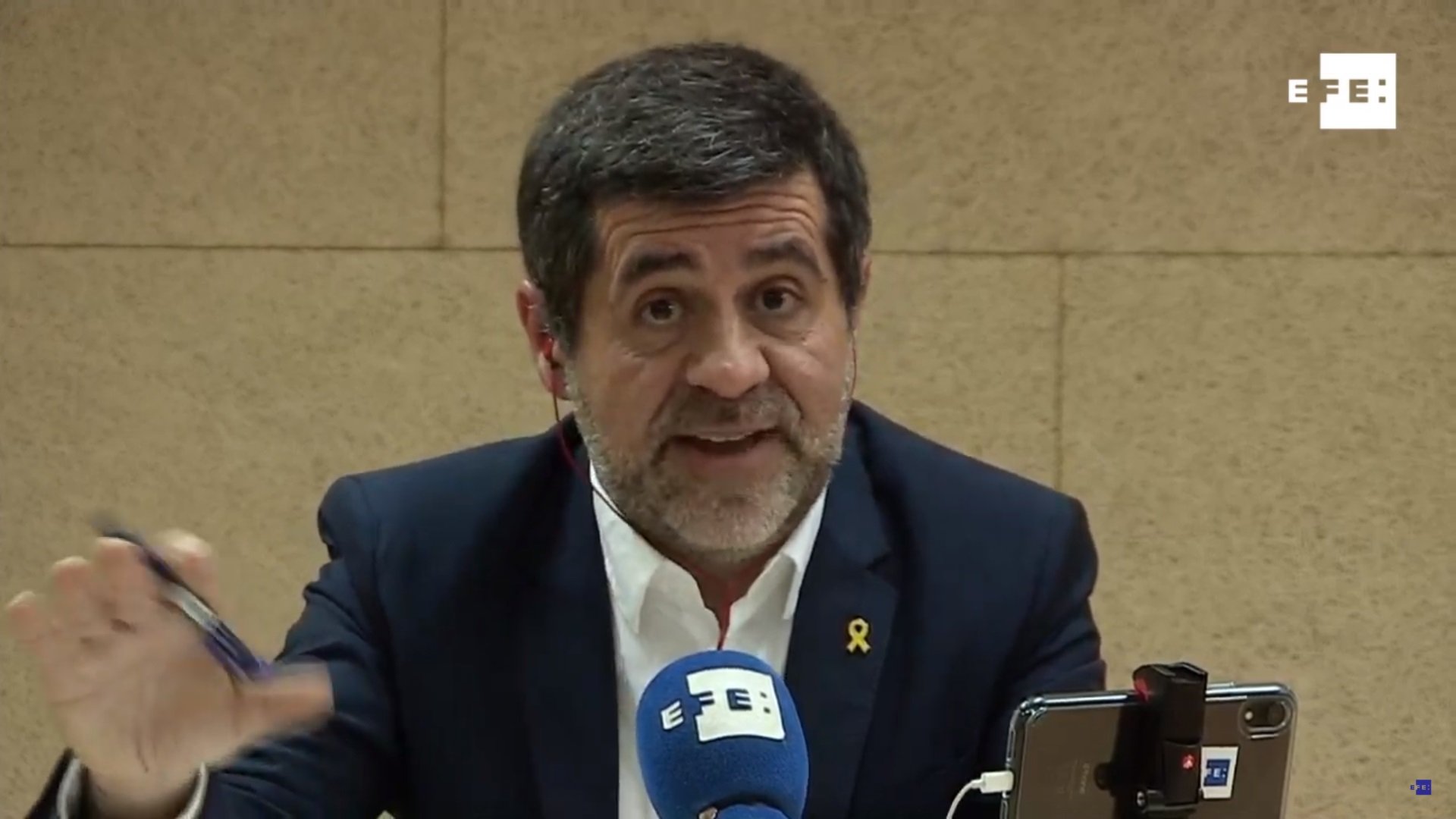Former president of the ANC Jordi Sànchez was sentenced today to nine years in prison and was banned from holding public office for the same length of time for sedition. After two years in provisional detention, that's the verdict of Spain's Supreme Court. He has spoken to El Nacional to give us his first thoughts on his sentence.
He explains he learnt of the court's decision alone in his cell, via TV, before the court clerk had arrived with the formal communication. "The civil servant, the famous Paco, was taken aback. I told him I'd got nothing against him, but that they could leave the way they'd come, that I wouldn't sign anything for them. That what they'd got to tell me, his bosses had already told me via the TV. They have no shame," he says.
What do you think of the sentence?
It's a sentence of state. Unjust... The state has looked for revenge and punishment.
Is it what you were expecting?
I haven't expected anything good from Spain's political and legal powers for too long, I think that's like the majority of the Catalan public. That said, acquittal was demanded and I was expecting it if it was a question of doing justice. It hasn't gone like that. They're not forgiving us for having put out 6,000 ballot boxes... They're making us pay with pain for that humiliation.
Does the fact you now know your sentence change in any way how you're facing the time in prison you've got left?
I hope to go on with the same strength. These two years I've already spent in prison have made me predisposed to assuming the worst, without losing hope nor optimism. In the day to day, nothing has to change of all that I've experienced these last 730 days. I will follow every day the prison routine like any other prisoner, regardless of whether it's Christmas, Sant Jordi, any old Tuesday or a weekend.
How did you get the news of the sentence?
Alone, in my cell watching television, a few minutes after 9:15 whilst I was waiting for my lawyers to arrive at Lledoners [prison]. [Presiding judge] Marchena hasn't even had the moral decency to wait for the civil servants to communicate the sentences to us personally. It's another demonstration of the lack of respect the Supreme Court has subjected us to.
Who formally communicated it to you?
A court official accompanied by a police officer. He tried to, but I didn't let him do so. I already knew what the sentence was and I asked him to not go through any more theatre.
How did that go down?
The official, the famous Paco, was take aback. I explained that I'd got nothing against him nor against the police officer who was accompanying him (responsible for security at the Supreme Court) but that they could leave the way they'd come, that I wouldn't sign anything for them. That what they'd got to tell him, his bosses had already told me via the TV. They have no shame.
What comes to mind when they tell you of such a sentence?
That we'll get through this. Plain and simple. Neither myself nor my family will fall into pessimism. That would be tantamount to gifting my jailers, in other words the Spanish state, the victory they're looking for. I've not done that so far and I hope I don't in the future. The people's solidarity and the demonstrations are the best antidote against the pessimism.
What did you do after receiving the confirmation of the sentence?
I called the people I love to give them then news and to encourage them. I suffer more for the people outside than for our circumstances within the prison's walls.
Have you been able to speak with the other prisoners to discuss your sentences?
Yes. And I've thought a lot about Dolors and Carme. They're very present despite their absence.
How did the other male prisoners seem?
Strong. Ready to continue being who they are and defending what we've always defended. Prison won't change us.
Have you be able to discuss the news with your lawyers?
Yes, we were together all morning. They were moved. They've done a great job and I'll never be able to thank them enough for their humanity and their professionalism. The sentence was decided before, long before the end of the trial. That's the way of political trials.
Have the other inmates said anything to you?
The majority show solidarity with us and tell us that they don't understand the injustice of such a severe sentence for events that everyone saw weren't what they've wanted to act as if they were.
Do you see the light at the end of the tunnel?
In this conflict, the public will have the last word. The end of the tunnel isn't just the end of our imprisonment, but also the end of the conflict. And it's on this point I remain convinced of the importance of mobilisation and public pressure.

